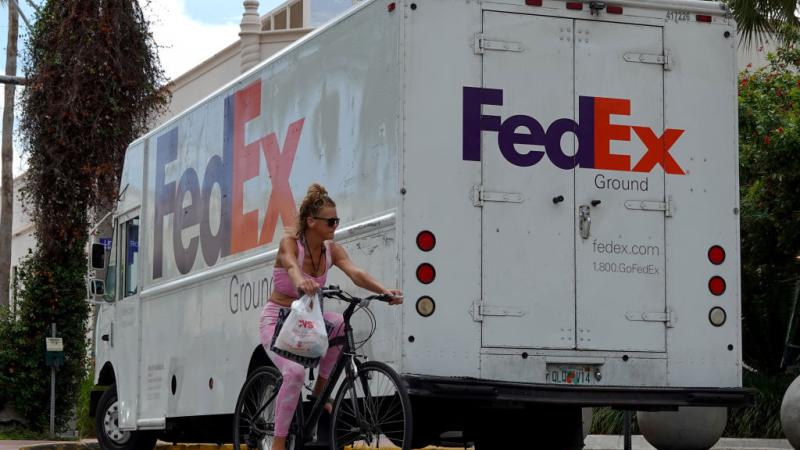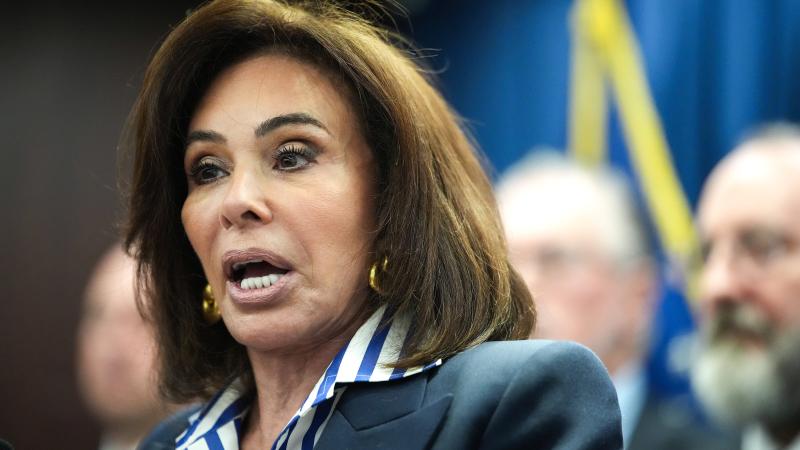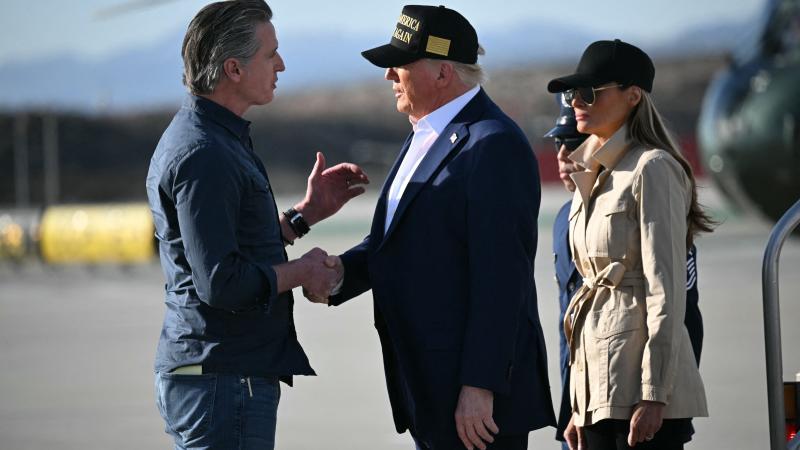Lawsuit, charges over AI deepfake robocalls may shut down various political speech before election
The DOJ will use it to create a “weapon to alter the outcome of the election and keep political speech from being communicated,” Dan Backer said.
A lawsuit over robocalls containing artificial intelligence "deepfakes" sent by a political consultant before the New Hampshire primary election may result in the shutdown of communications between conservative organizations, Republican campaigns and their supporters ahead of the November election.
A "deepfake" is defined by the Oxford English Dictionary as media "that has been digitally manipulated to replace one person's likeness convincingly with that of another, often used maliciously to show someone doing something that he or she did not do."
While a political consultant’s use of AI is the focal point of a civil lawsuit over robocalls, a Republican attorney warns that the case, following the federal government’s interest in it, could affect the political speech of organizations and campaigns that Democratic and left-leaning organizations oppose.
Steve Kramer, a get-out-the-vote political consultant who has mainly worked for Democrats, previously admitted to media outlets that he had sent robocalls to thousands of state residents with an AI deepfake of President Joe Biden’s voice ahead of the New Hampshire primary election, NBC News reported. The call, which “spoofed” the caller ID to hide its origin, told them to stay home and “save” their votes for the general election.
Kramer had a contract with the campaign of Rep. Dean Phillips, D-Minn., at the time, who was challenging Biden. Both Kramer and Phillips’ campaign denied that the latter had any knowledge of the robocall.
Kramer has claimed that he commissioned the robocall to lead to regulations on AI deepfakes.
“This is a way for me to make a difference, and I have,” Kramer told NBC News in February. “For $500, I got about $5 million worth of action, whether that be media attention or regulatory action.”
Kramer has been sued by the state and the League of Women Voters (LWV) over the robocall, while also facing fines from the Federal Communications Commission (FCC).
In May, the Republican New Hampshire attorney general charged Kramer with 13 felony counts of voter suppression and 13 misdemeanor counts of impersonation of a candidate, based on calls received by 13 New Hampshire voters. After his June bail hearing, Kramer declined to comment as he left the courthouse. His attorney said, “Obviously right now we're enjoying the presumption of innocence, we're going to review all the different charges and engage in discussions with the attorney general's office.”
Kramer is separately facing a proposed FCC fine of $6 million for allegedly violating federal Caller ID law by setting up "scam calls” in order “to defraud voters," according to the federal agency.
The FCC is also fining a telecom company involved in the robocalls.
On Wednesday, Lingo Telecom, the voice service provider that transmitted the robocalls, reached a settlement with the FCC to pay a $1 million fine. Lingo Telecom also agreed to more thoroughly vet the accuracy of the information provided by its customers and upstream providers and adhere to strict caller ID authentication rules and requirements.
Meanwhile, a civil lawsuit was filed by LWV against Kramer in New Hampshire's federal district court in March, along with telecom and broadcasting companies. LWV argues that “the right to vote free from intimidation, threats, or coercion … was unlawfully infringed upon as a result of the actions and threatened actions” of the defendants.
LWV claims that Kramer violated a section of the Voting Rights Act of 1965 (VRA) by sending the robocall with “in an effort to intimidate, threaten, or coerce Democratic voters into not voting in the New Hampshire Primary and thereby suppress their votes.”
Last month, the U.S. Department of Justice (DOJ) filed a statement of interest in the case, arguing that LWV has “a private right of action” to sue over the VRA. The DOJ wrote that the section of the VRA cited by LWV in its lawsuit “is enforceable by private plaintiffs.”
Republican lawyer Dan Backer told the “Furthermore with Amanda Head” podcast last week regarding Kramer that “The League of Women Voters sued him, civilly, alleging that his conduct constitutes a threat under the Voting Rights Act, and that robocalls are threatening. And then the Department of Justice filed what's called the statement of interest in this case, arguing that, yes, the Voting Rights Act has a private right of action, so anybody can sue, and that robocalls are threats. And by the way, both of these things are just categorically untrue, completely false.”
LWV requested a preliminary injunction in April, “asking the court to stop the defendants from producing, generating, or distributing AI-generated robocalls, text messages or any form of spoofed communication impersonating any person, without that person’s express consent.”
Backer explained that if LWV gets “an injunction in this case, against Kramer, they're going to open the floodgates on every Democratic organization in this country going around and saying that any robocall or live call or text message or email or online ad that in any way references election integrity is actually voter intimidation under the VRA, and they have a right to sue under it, and they are going to go nuts.”
While campaigns will fight these lawsuits, the telephone companies “don't care, and so they're going to be more than happy to shut down, throttle our traffic, demand audits, and otherwise dramatically reduce the ability of Republicans to communicate their political message in the 30 days before the election,” Backer said.
Backer told Just the News last Friday that he believes this legal approach is “unreasonable,” since the DOJ will use it to create a “weapon to alter the outcome of the election and keep political speech from being communicated.” Having other organizations pursue these cases rather than the DOJ would make them “more palatable,” whereas if the DOJ prosecuted them, they “could lose those cases down the road.”
As for Kramer, according to court documents filed by the LWV "he has no intentions of ever appearing in this action" and the LWV filed a motion for a default judgment against him on August 7. U.S. Magistrate Judge Talesha L. Saint-Marc has not yet ruled on that motion.
Regardless of whether LWV gets its preliminary injunction, “it’s enough that the government made this official policy by entering it into the record,” Backer said.
The DOJ didn't immediately respond to a request for comment Thursday.















